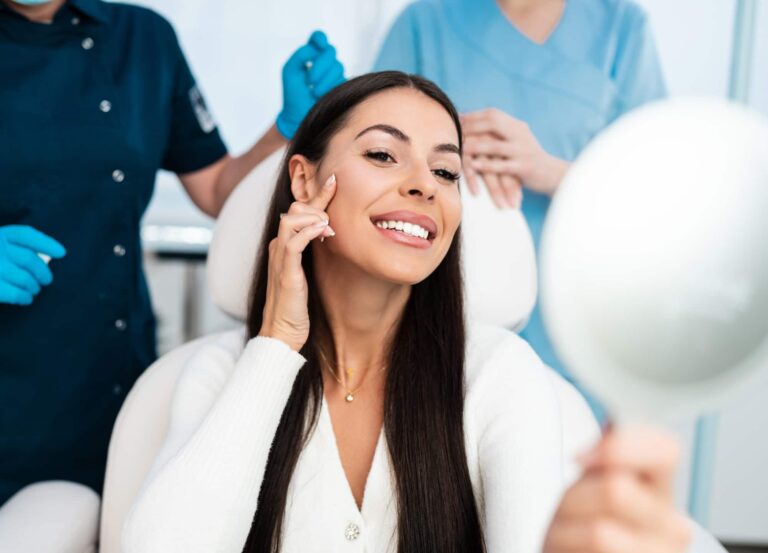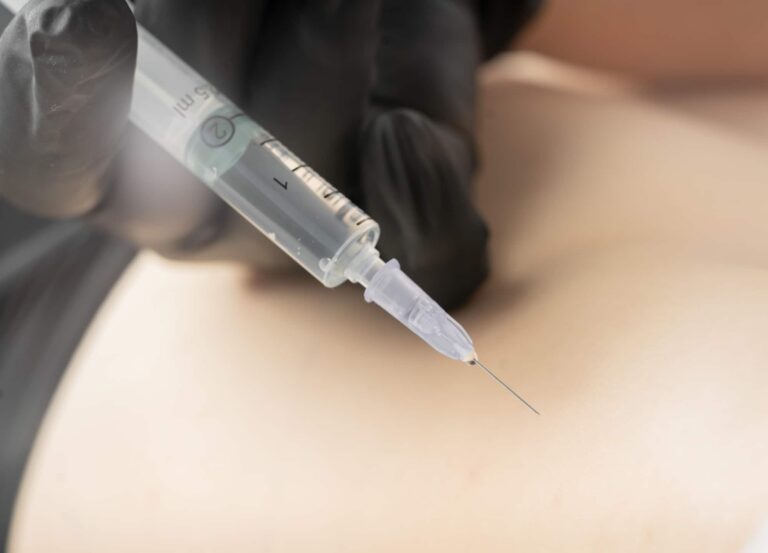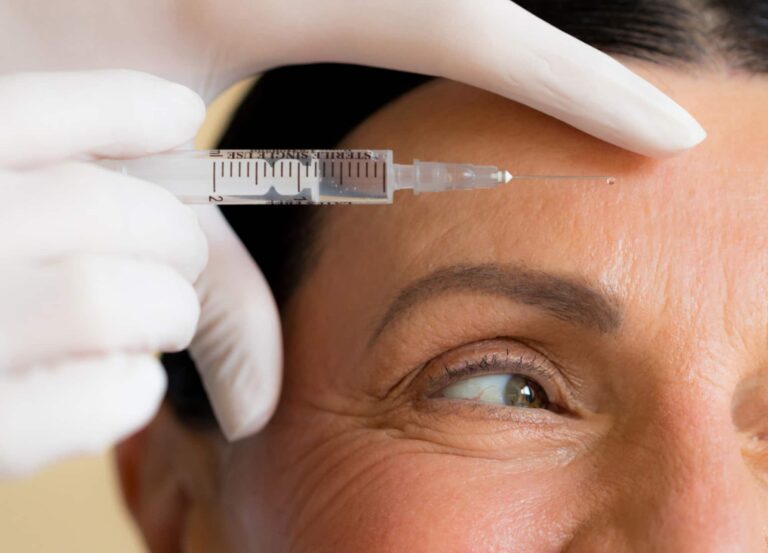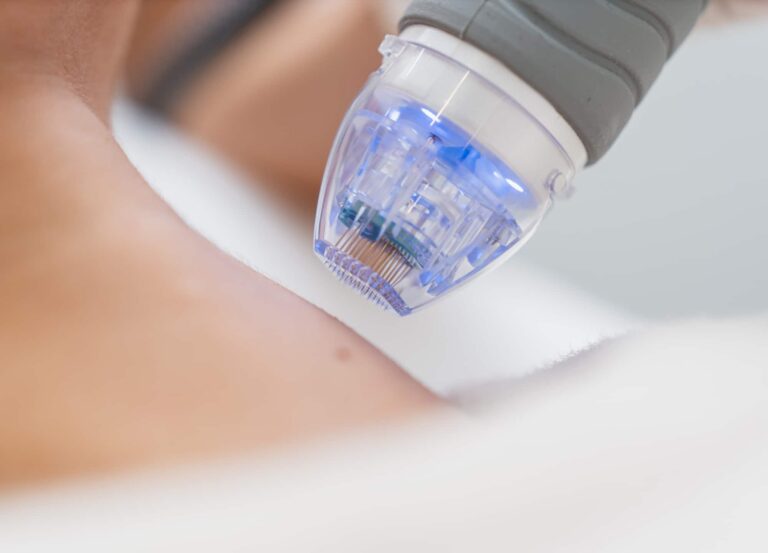All plastic surgery procedures carry some level of risk, which is why it’s so important that both patients and doctors take all possible measures to mitigate potential issues. Checking for board certification, making sure the operating facility is accredited, and getting medical clearance from your general physician are all steps that can help ensure your surgery goes as smoothly as possible. And if you’re a smoker, we’re going to say something you’ve likely heard a million times before: you have to quit—at least temporarily.
Not only does smoking put patients undergoing any type of surgery at increased risk for complications, but it also poses one uniquely distinct—and major—problem when it comes to plastic surgery. Ahead, doctors weigh in on what any smoker considering plastic surgery needs to know and why putting a pause on your nicotine habit before and after your operation is absolutely paramount.
What types of risks do smokers run?
All the doctors we spoke with underscore one major risk for smokers undergoing plastic surgery. “Obviously, smoking can cause a multitude of health issues, but the most important factor as it pertains to plastic surgery is inhibited microcirculation and blood supply, which negatively affects the healing process,” says Dr. Babak Azizzadeh, a board-certified facial plastic surgeon in Beverly Hills, California. Nicotine constricts blood vessels, which is the absolute last thing you want post-surgery, when skin and tissue need to repair and regenerate. This can lead to slower healing time, increased scarring, and more serious cases of tissue necrosis, Dr. Azizzadeh explains. Also known as tissue death, this complication is much more likely to occur in smokers than nonsmokers, he adds.
“Anytime we’re getting rid of or tightening excess skin, we’re already destroying blood flow and cutting through the vessels that are necessary for post-surgery healing,” says Dr. John Paul Tutela, a board-certified plastic surgeon in Livingston, New Jersey. “Throw nicotine into the mix, and those already snipped vessels are now also being strangled. It’s like tying a tourniquet on an incision that you’re trying to heal,” he says. It bears mentioning that nicotine is the culprit here, meaning that it’s not only smokers who are at risk but also those who vape, chew tobacco or nicotine gum, or use nicotine patches, Dr. Tutela points out.
Do you have to stop smoking only if you’re undergoing general anesthesia?
No, although general anesthesia comes with its own set of potential issues. “Smokers are more reactive to general anesthesia and can have problems with the inhalation gases and medications used,” says Dr. Manish Shah, a board-certified plastic surgeon in Denver. Chronic smokers are more likely to have baseline cardiopulmonary diseases, which also puts them at high risk for increased complications due to anesthesia and the surgery in general, he points out. However, given the aforementioned correlation between nicotine and poor wound healing, it’s advised to stop smoking before pretty much any type of plastic surgery.
How soon before plastic surgery do you have to stop smoking?
Our doctors had varying answers to this question, ranging from at least two weeks to six weeks prior. Your best bet? Check with your surgeon, as there may be slightly more leeway based on the particular surgery you’re having.
Why is it so important to not smoke during recovery, and when can you start again?
The same risks surrounding decreased microcirculation are further heightened during the recovery period. The surgery itself has cut off blood supply to the skin, and it takes at least 72 hours for new blood vessels to form. Smoking impedes that process, making wound healing much more difficult, says Dr. Shah. Similarly, smoking also inhibits the production of collagen, another component that’s essential for skin to heal properly; it does this by depressing levels of collagen-stimulating vitamin C, he points out. The first four to six weeks post-surgery are when new collagen is being made, and, again, smoking can negatively impact that process. Your best course of action is to stop for the same amount of time post-surgery as you did before.
What procedures are most affected by smoking?
The highest risk comes with surgeries where the skin is being lifted and tightened; Dr. Tutela cites breast lifts, tummy tucks, and facelifts, specifically. These are the types of procedures that put a lot of pressure on the skin and its blood supply, adds Dr. Azizzadeh. When there isn’t as much skin being cut or removed, smoking is, obviously, still ill-advised, though the associated wound-healing risks are, admittedly, diminished. For example, Dr. Tutela says that while he advises that patients stop smoking before a breast augmentation, he doesn’t require them to do so, like he does with other surgeries. Dr. Azizzadeh says he will perform a lower blepharoplasty or closed rhinoplasty on smokers, using slightly modified techniques to further reduce (though not eliminate) the risks involved.
How serious a smoking habit is too risky?
This is hard to quantify—but the doctors agreed that increased quantity and frequency of smoking increase the risk level. That being said, Dr. Shah notes that many patients aren’t entirely honest when it comes to telling their doctor how much they *actually* smoke. In other words, it’s in your best interests to be up front about your smoking habits. Your doctor will come up with a plan based on your individual situation. “The risk profile of the surgery, along with the risk tolerance of both the patient and doctor, all need to be taken into consideration,” says Dr. Azizzadeh.
What if you’re not a smoker but smoke right before surgery?
This depends on your plastic surgeon, but many will do a nicotine test the day of surgery and won’t operate if you test positive, warns Dr. Shah. “The nicotine from even one cigarette stays in your blood for up to 30 days and is the most concentrated right away,” he adds. Point being, the day before surgery is definitely not the time to light up.
What about vaping and marijuana?
“The research on vaping and smoking marijuana isn’t as clear or extensive as it is on traditional cigarette smoking, but they’re all altering the ways in which the lungs absorb oxygen,” says Dr. Azizzadeh—a potential issue if you have to have general anesthesia. As far as wound healing goes, vaping still delivers that problematic nicotine. Marijuana is less of an issue in that regard, but it is associated with more bleeding complications, explains Dr. Shah. It’s best to refrain from vaping for the same amount of time as you would smoking. Ideally, marijuana use should be stopped for a week before and after, says Dr. Tutela.
The bottom line
If you’re a smoker who’s planning to have plastic surgery, the best thing to do is stop as far in advance as possible. “These are elective operations. You want to do everything possible to ensure a safe and satisfactory end result and not wind up with complications or problems that you’ll have to fix after the fact,” says Dr. Shah. Coming up with a pre- and post-surgery nonsmoking plan with your doctor—and sticking to it—is one of the best ways to do exactly that.











